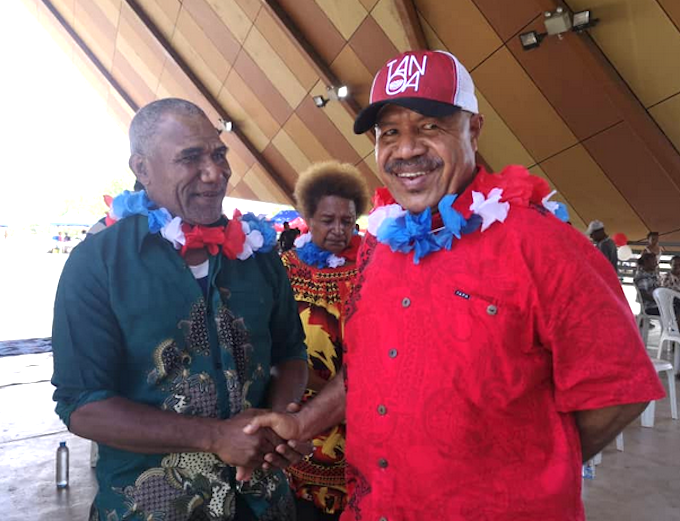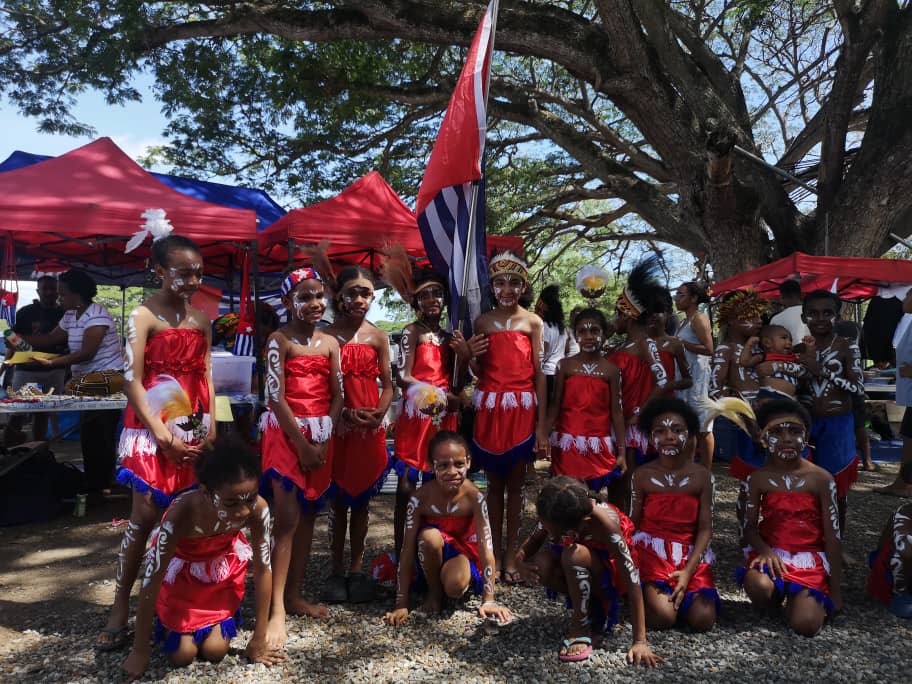Governor Powes Parkop of Papua New Guinea’s capital Port Moresby has appealed to West Papuans living in his country to carry on the self-determination struggle for future generations and to not lose hope.
Parkop, a staunch supporter of the West Papua cause, reminded Papuans at their Independence Day last Sunday of the struggles of their ancestors, reports Inside PNG.
“PNG will celebrate 50 years of Independence next year but this is only so for half of the island — the other half is still missing, we are losing our land, we are losing our resources.

“If we are not careful, we are going to lose our future too.”
The National Capital District governor was guest speaker for the celebration among Port Moresby residents of West Papuan descent with the theme “Celebrating and preserving our culture through food and the arts”.
About 12,000 West Papuan refugees and exiles live in PNG and Parkop has West Papuan ancestry through his grandparents.
The Independence Day celebration began with everyone participating in the national anthem — “Hai Tanaku Papua” (“My Land, Papua”).
Song and dance
Other activities included song and dance, and a dialogue with the young and older generations to share ideas on a way forward.
Some stalls were also set up selling West Papuan cuisine, arts and crafts.

Governor Parkop said: “We must be proud of our identity, our culture, our land, our heritage and most importantly we have to challenge ourselves, redefine our journey and our future.
“That’s the most important responsibility we have.”’
West Papua was a Dutch colony in the 9th century and by the 1950s the Netherlands began to prepare for withdrawal.
On 1 December 1961, West Papuans held a congress to discuss independence.
The national flag, the Morning Star, was raised for the first time on that day.
Encouraged to keep culture
Governor Parkop described the West Papua cause as “a tragedy”.
This is due to the fact that following the declaration of Independence in 1961, Indonesia laid claim over the island a year later in 1962.
This led to the United Nations-sponsored treaty known as the New York Agreement.
Indonesia was appointed temporary administrator without consultation or the consent of West Papuans.
In 1969 the so-called Act of Free Choice enabled West Papuans to decide their destiny but again only 1026 West Papuans had to make that choice under the barrel of the gun.
To this day, Melanesian West Papua remains under Indonesian rule.
Governor Parkop encouraged the West Papuan people to preserve their culture and heritage and to breakaway from the colonial mindset, colonial laws and ideas that hindered progress to freedom for West Papua.
Republished with permission from Inside PNG.

